Top 7 Sierra Leone Culture, Customs, and Etiquette
Sierra Leone, warm and sweet, bursts forth as a captivating destination for lovers of the outdoors and vibrant culture, explorers with adventure in their ... read more...hearts. The country has a unique blend of cultures and traditions from all ethnic groups. People's cultures, beliefs, traditions, and values are highly valued. Here is a list of Sierra Leone culture, customs, and etiquette that Toplist offers you.
-
Boys and girls are educated together, and early relationships develop between them. Informal dating is acceptable in cities, but not in villages. More Westernized Sierra Leoneans choose their own marriage partners, though they are frequently influenced by their families. In villages, a marriage can be arranged at any age, but it does not take place until the girl reaches puberty.
Sierra Leone wedding traditions vary according to tribe. Regardless of their wedding traditions, a wedding begins when a man gathers enough bride price (often a combination of money and other gifts) to give to the prospective bride and her family. A bride price is negotiated by the prospective groom, and in some cases, other villagers contribute to it.
The traditional wedding of Sierra Leone is as unique as each tribe that makes up Sierra Leone. There is no specific dress style in Sierra Leone for an exclusive traditional wedding dress. Some couples may prefer the Ghanaian Kente style, the Nigerian Aso Oke style, or another African fabric that best suits their taste and balance. When a woman marries, she moves in with her husband's family. Polygamy is common among men.

youtube.com 
sierraloaded.com -
If you pay a visit to a Sierra Leonean friend, he or she will almost always invite you to stay and eat. Typically, men and boys eat separately from women and girls. Everyone washes their hands before eating, and then they form a circle around a large dish of food in the center. Sharing is an important part of life in Sierra Leone, and each person eats from the portion of the large dish that is directly in front of him or her. Reaching across the dish is impolite! Only the right hand is used for eating; the left hand is considered unclean.
Sierra Leonean people usually don't talk when they are eating. Talking demonstrates a lack of regard for the food. It is impolite to eat while leaning on your left hand. After the meal, water is usually passed around to be drunk and used to wash one's face and hands.
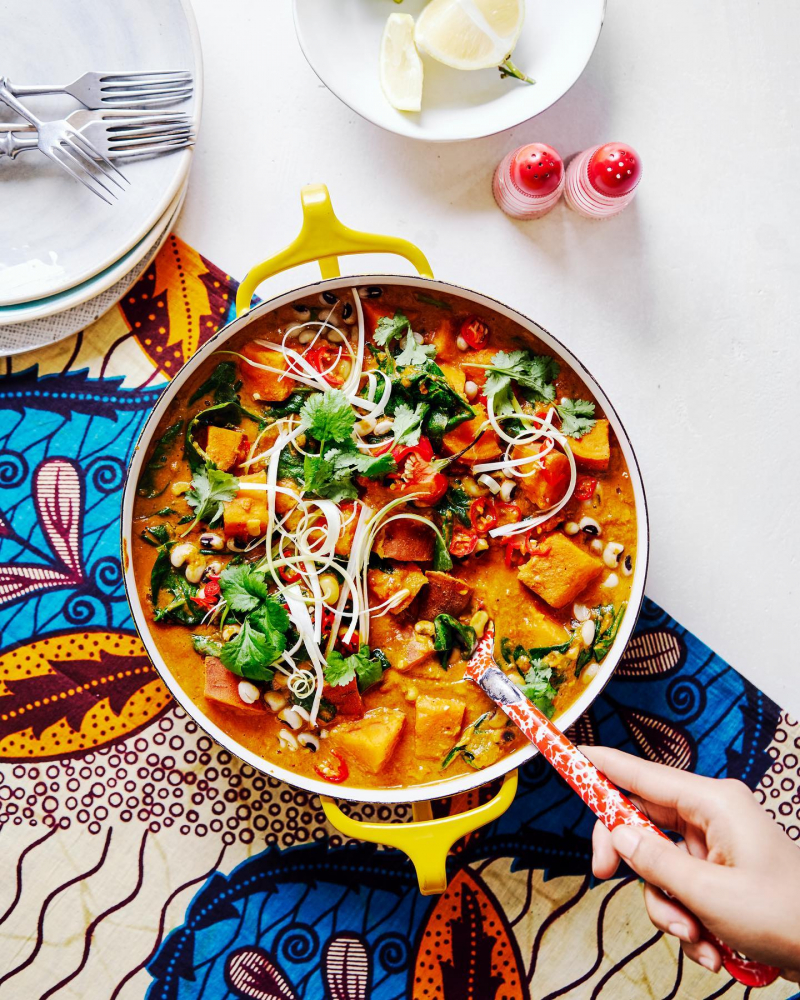
internationalcuisine.com 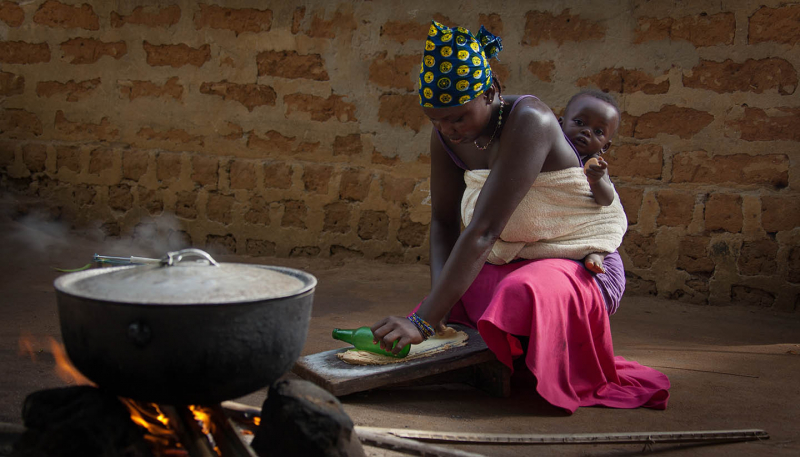
worldtravelguide.com -
Sierra Leone's religious practices are syncretic and mixed with traditional beliefs, owing to the country's Muslim majority and an influential Christian minority. The state is secular and widely regarded as one of the most religiously tolerant in the world. Muslims and Christians coexist and interact in a peaceful manner. However, there are significant social issues and human rights concerns.
Religious freedom is guaranteed in the Constitution, subject to the rights of others. No one shall be denied the right to freedom of conscience, including the right to free thought and religion, as well as the right to change one's beliefs. Religious practices have no bearing on others. The government has no authority to prohibit others from teaching religion. No one shall be compelled to take an oath that is incompatible with his or her religion.
Religious organizations are governed by the Ministry of Social Welfare. All religions are required to register. When a group registers with the ministry, they receive a duty-free exemption. Religions must coexist peacefully if they are to be meaningful to people. Religion is an essential component of maintaining peace. There are no restrictions or rules governing the children's religion. They are free to practice whatever religion they choose.
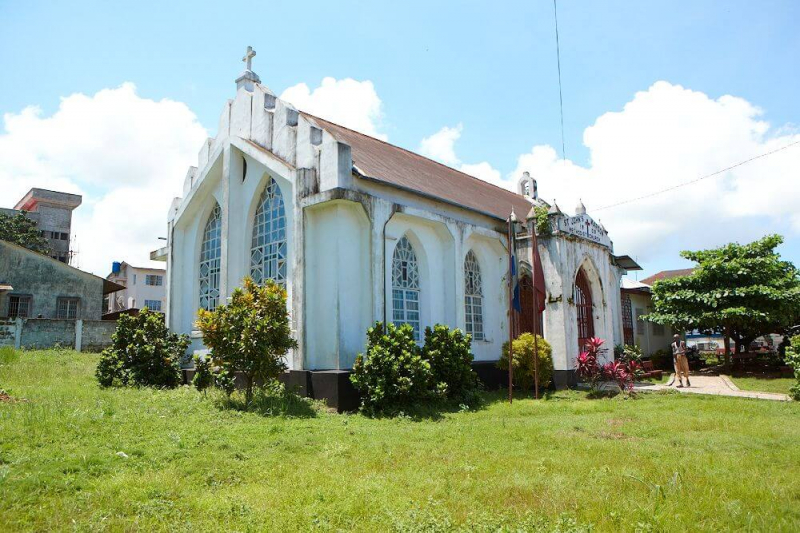
visitsierraleone.com 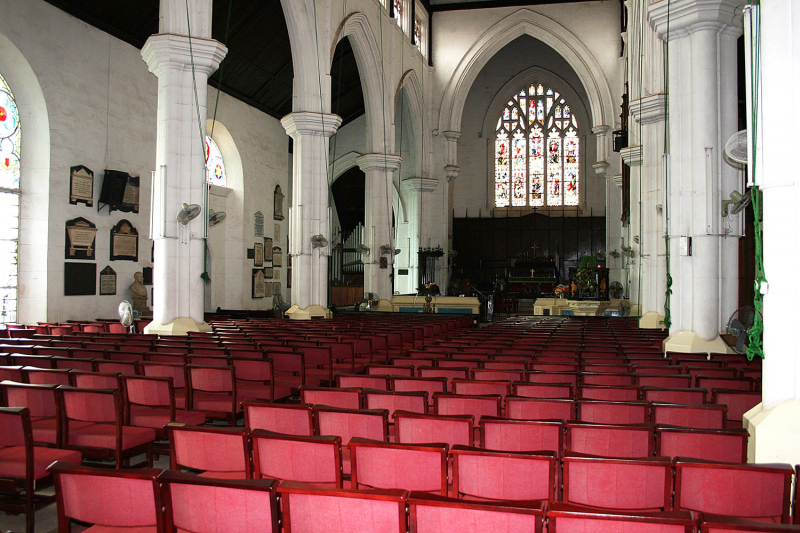
visitsierraleone.com -
Business etiquette in Sierra Leone varies according to individual sectors and tends to follow western customs. When meeting with someone, it is polite to greet them and address them by their professional titles. Sierra Leone's official administrative language is English. All correspondence is written in English. Business cards are accepted. Personal calls, emails, cell phone conversations, text messages, and even hand-delivered notes can all be used to schedule business appointments. Meetings are not always punctual in Sierra Leone, and events do not always begin on time. It is also a good idea to confirm appointments ahead of time.
Have everything set up before meetings, as it is perceived as impolite to ask your hosts for anything. For more formal dealings, lightweight suits should be worn. Shaking hands between men and women is the most common form of introduction and business cards can be exchanged. Business hours are generally from 8 a.m. to 12 p.m. and from 2 p.m. to 5 p.m. Monday through Friday.

unsplash.com 
crossbreedconsult.com -
Sierra Leone's culture is heavily influenced by music and dance, with distinct styles of dance and song spanning across communities. Many of these dances are ceremonial in nature and use symbolism and intricately carved wooden masks to express themselves.
The slit-log drum, known as the kelei, the single-skin drum, known as the sangbei, and a rattle, known as the segbure, are the most commonly used musical instruments in Sierra Leone. These instruments are typically used to accompany the locals' ceremonial dances, but they are also frequently played and enjoyed on their own.
Travelers will be hard pressed to find local villages that do not occasionally vibrate with music and song. The Mende people in particular are well-known for their beautiful traditional songs, which are inspired by various themes such as religion, love, and war.
Sierra Leoneans are also talented visual artists. They primarily focus on woodwork and wood carving, ivory and stone carving, and cloth work, and authentic, hand-crafted masterpieces can be found at many bustling local markets across the country. Locals are well-known for making colorful lanterns and floats for Freetown's lantern festivals, which are parades held to mark the end of Ramadan or to commemorate important events such as national holidays.
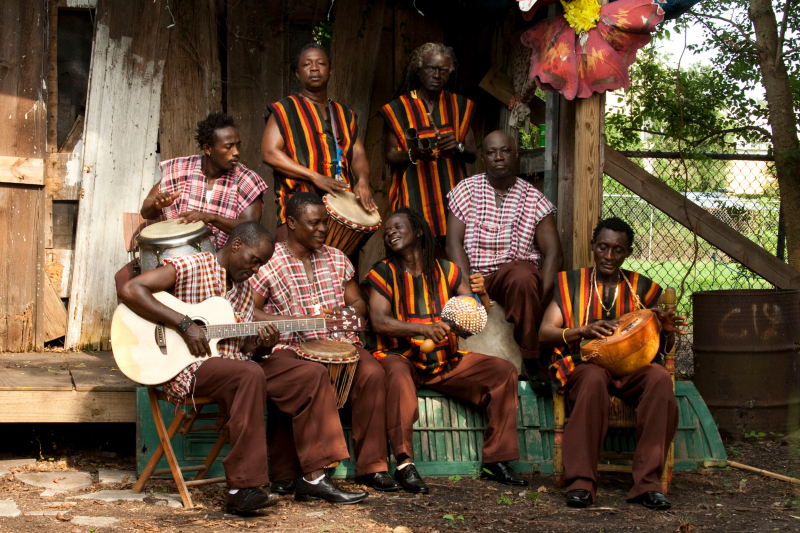
cumbancha.com 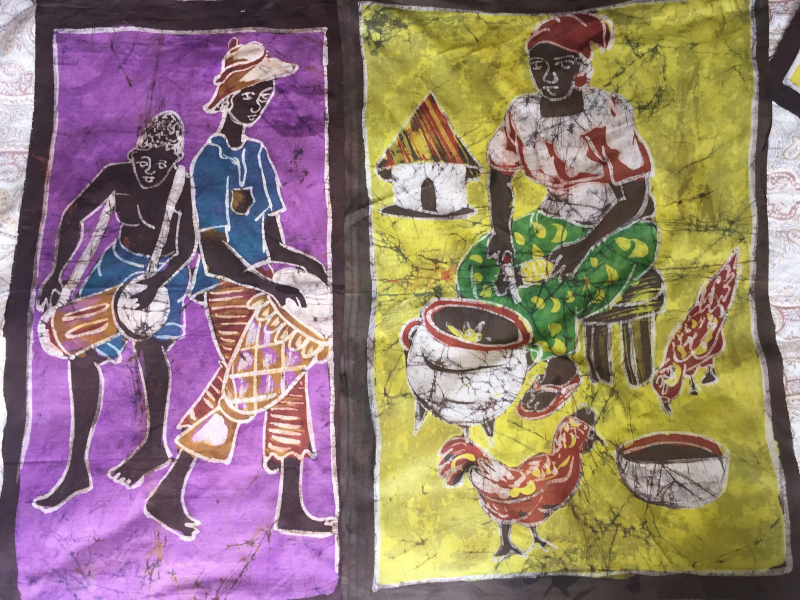
katysblog.wordpress.com -
In Sierra Leone, greetings differ according to ethnic group. "Hello" in Krio is Kushe. It is Bua in Mende and Seke in Temne. When shaking hands with someone of higher status, it is customary to support one's right arm with one's left arm, implying that the other person's hand is of great weight. The Mende people may shake another person's hand and then touch their chest with the other hand.
In Sierra Leone, people are frequently addressed with "Mr." or "Miss." Someone of the same age may be addressed as "brother" or "sister," while elders may be addressed as "auntie," "uncle," "ma," or "pa." Padi ("friend") is a common way to address a stranger. Friends visit or "keep time" with one another on a regular basis. Men may gather in the evenings to drink fresh palm wine or beer. Women socialize in the family compound's cooking house. It is not necessary to bring a gift when visiting someone else's home, but it is important to accept whatever the host offers—usually water or food. Upon departure, honored guests are frequently given food.

snradio.net 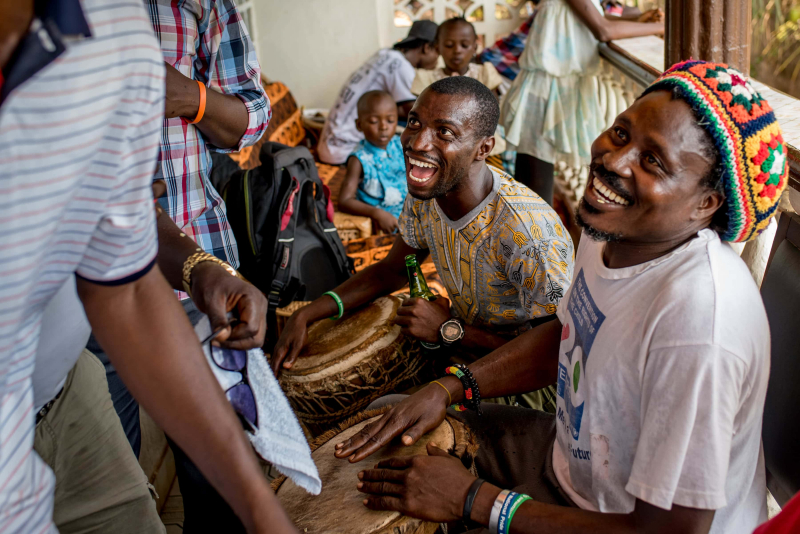
mattbadenoch.com -
In Sierra Leone, the typical household includes the extended family with parents, children, grandparents, aunts, uncles, and cousins all living in the same house. Aunts may be addressed as mother, and cousins are called brother or sister. One of the parents, either the mother or father, will be financially responsible for their family. Men are the dominant figures in the home in Sierra Leone, and they may make decisions without the wife's knowledge.
Allowing family members to have regular, individual time alone to pursue their own activities, socialize with friends, or simply relax is not common in Sierra Leone. The majority of time is spent as a family, with very little time spent alone. When there is more than one wife living on a compound, the wives usually share responsibilities and raise children. The average woman births five children over the course of her lifetime. Men can also assist with child rearing.
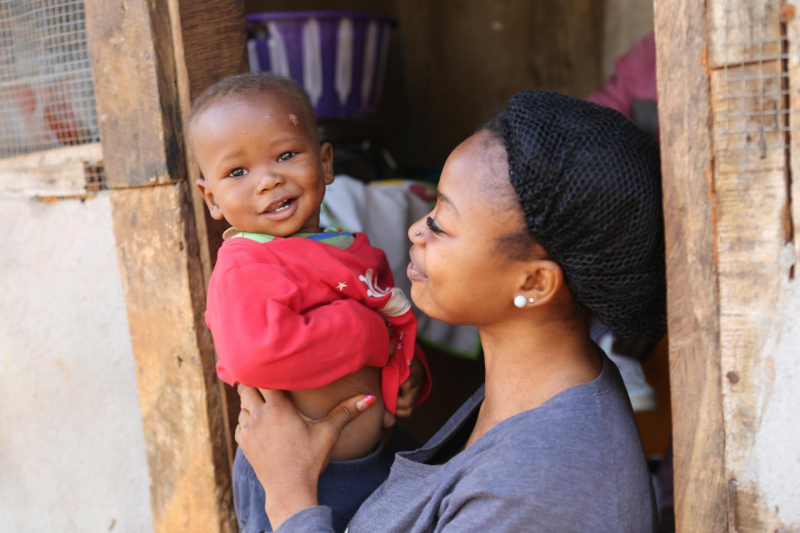
unicef.org 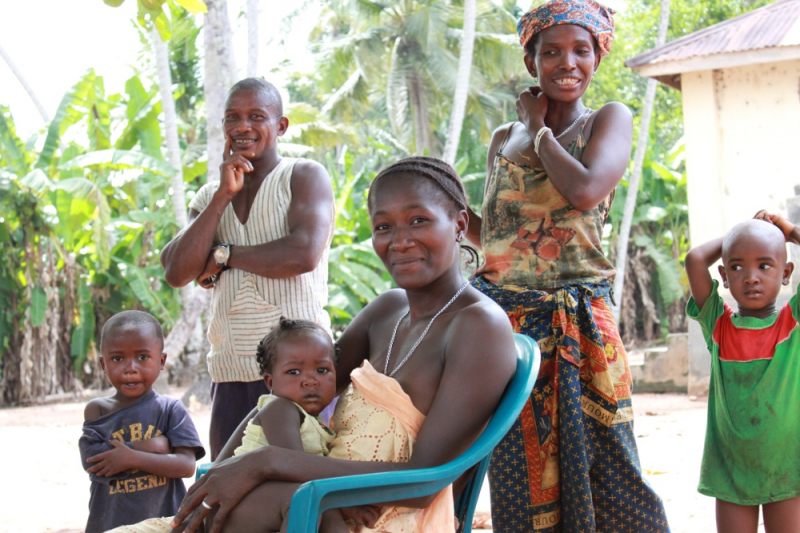
childrenincrisis.com




























